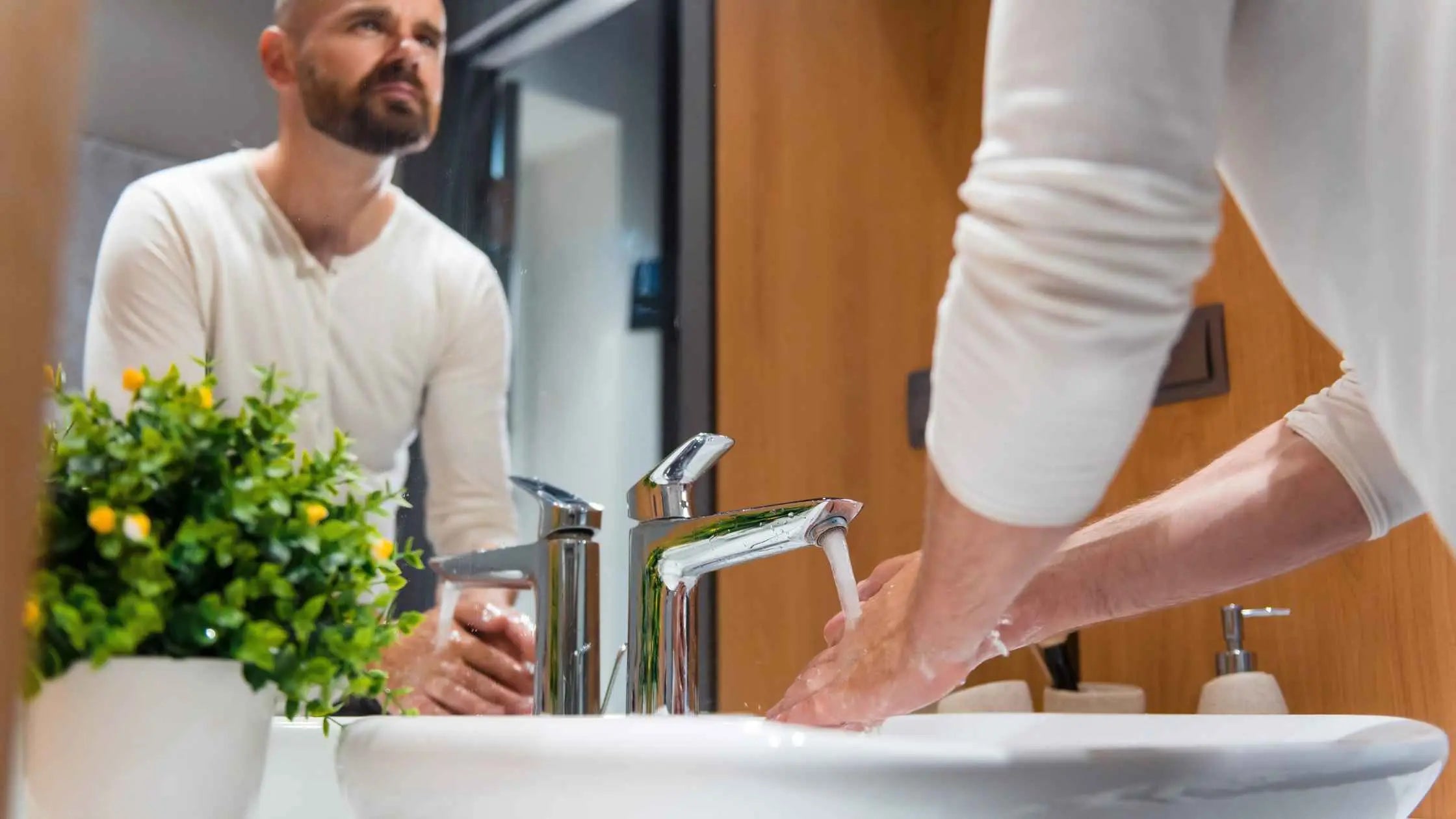If you've ever wondered whether antibacterial soap is better than regular soap and water, rest assured that it's not. In fact, it's probably worse for your health.
That said, there are some situations where antibacterial soaps have their place (say, at the gym or in hospitals). But generally speaking, they aren't necessary and can even be harmful if used regularly by everyone. Let's dive into why that is!
Is antibacterial soap better than regular soap?
It's a question that has plagued people for years: Is antibacterial soap better than regular soap? The answer is no, but it does depend on what you're trying to accomplish.
Antibacterial soaps are designed to kill bacteria and germs on your skin by killing them with chemicals. Regular soaps just clean your hands and don't contain these chemicals.
But here's where things get tricky: while they may be effective at killing 99 percent of germs, they also tend to damage other things in your body like good bacteria in the gut (which is important for digestion) or skin cells that protect against infection.
In fact, some studies have shown that using antibacterial products can actually increase your risk of getting sick because these products kill off all kinds of beneficial microorganisms--and this includes those found naturally inside our bodies!
Antibacterial soap's effectiveness
You may not be aware of this, but antibacterial soap can kill germs and prevent the spread of germs. In fact, it's so effective at killing germs that some people use it in their kitchens as well as their bathrooms.
It's also a good idea to keep some on hand for when you're sick or recovering from surgery--especially if you live with someone else who might not understand how important it is to wash their hands after using public restrooms!
Does antibacterial soap kill more germs than regular soap?
Yes, antibacterial soap kills more germs than regular soap and water. But it's not all that effective.
According to the Mayo Clinic, antibacterial soaps contain triclosan--a chemical that has been shown to kill 99.9% of bacteria on your hands after 30 seconds of washing them in antibacterial soap compared to only 65% with regular hand washing (and even less when you don't use soap). This would suggest that antibacterial soaps are obviously better at killing germs than regular ones, right? Well...not necessarily.
First off: if you're using an actual timer when washing your hands with either type of product (which is a good idea), then there's no way for us here at Christian's Guide To Not Getting Sick Ever Again!™ Foundation Incorporated (or whatever) know what kind of time frame or method was used during testing by medical professionals across America who have determined that triclosan does indeed kill 99%+ percent of harmful bacteria within 30 seconds - we're just going off what they told us and assuming it's true because why not?
Second: Viruses aren't affected by antibiotics like penicillin because viruses aren't living cells like bacteria - but rather complex structures made up entirely out proteins which makes them impervious against attacks from chemicals like antibiotics...well guess what happens when you combine both? You get something called cross-resistance where those same proteins protect against both types simultaneously
Mildew, mold and bacteria build-up on your skin
As you might expect, antibacterial soap is not the cure-all it's advertised to be. While it can help prevent mildew and mold from growing on your skin (which can also cause serious health issues), antibacterial products are not recommended for everyone. In fact, they may even be harmful if used improperly or frequently enough that they disrupt your body's natural flora balance
What are the downsides to using antibacterial soap?
The downsides to using antibacterial soap are many.
First and foremost, let's talk about the environment. Antibacterial soaps contain triclosan--a chemical that can kill bacteria and viruses (and also end up in your bloodstream). But there's also evidence that triclosan can disrupt hormones in animals and people, which could have health consequences later on in life (like increased risk of heart disease). And because it's an antimicrobial agent, triclosan accumulates in lakes and rivers when people wash their hands with it; this could lead to the creation of "superbugs" resistant to antibiotics.
So if you're worried about killing germs on your hands or cutting down on antibiotic resistance, there are better ways than using antibacterial soaps: washing them with plain ol' soap and water is just fine! Even though they don't kill as many germs as antibacterial soaps do per wash--they still do a pretty good job at reducing bacteria levels by around 80 percent compared with just rinsing alone.
And while some studies suggest that handwashing with soap reduces cold symptoms after exposure has already occurred (but does not prevent them), other research indicates no difference between washing hands with plain water versus antibacterial cleansers when it comes down to preventing illness from spreading among healthcare workers who come into contact with infected patients. In fact, one meta-analysis found that people who used an alcohol-based hand sanitizer had fewer total infections than those who washed their hands regularly but did not use any type of antiseptic.
While antibacterial soaps can kill germs, they aren't necessarily always better than regular soap and water
While antibacterial soap can kill germs, it's not necessarily always better than regular soap and water. In fact, there are some reasons why you might want to consider switching over from your antibacterial soap habit:
-
Antibacterial soaps are more likely to cause allergies.
-
Antibacterial soaps can contribute to antibiotic resistance. This is because when we use antibiotics too much (which happens when we use antibacterial products), bacteria become resistant and harder for doctors to treat them effectively with antibiotics in the future when someone gets sick from them again.
-
Antibacterial soaps may cause more skin irritation than regular soaps do; this is because of how harsh they are on your skin! If your skin isn't used to being scrubbed down with these chemicals every day then it may get irritated by them over time which leads us into our next point...
Conclusion
So, what do I think? Should you be using antibacterial soap? I'm going to say no. If regular soap and water is just as effective and healthier for everyday use, then just stay away from antibacterial soaps. Dapper Yankee soaps are not antibacterial, but are very effective for killing germs and helping to prevent the spread of infectious disease.


Share:
You Can Build a Better Community Through These Meaningful Actions
5 Signs of Having Low Testosterone